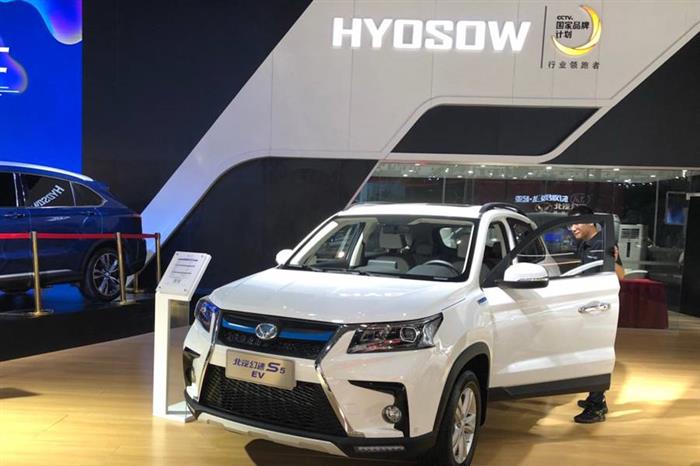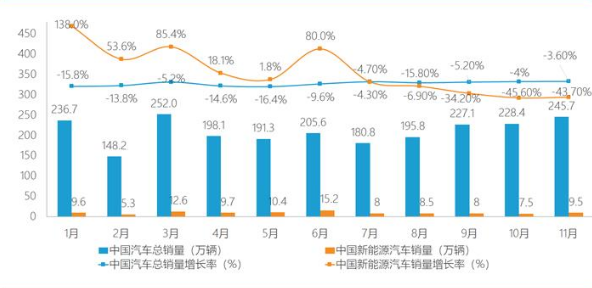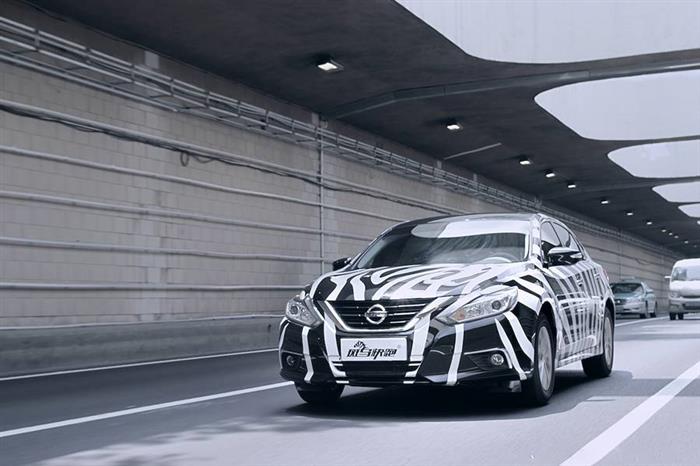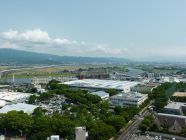
Towards the end of 2019, the era of joint venture between changan and PSA also came to an end.
On Nov. 28, a PSA group spokesman announced that the company plans to sell its 50% stake in the changan PSA joint venture. On the same day, chang 'an motor filed a listing application to sell its other 50 per cent stake in the joint venture.
Throughout the Chinese auto industry in 2019, changan PSA is just one of countless companies facing extinction.
According to the China association of automobile manufacturers, cumulative vehicle sales in the january-november period were 23.11 million units, down 9.1 percent from a year earlier. Among them, the cumulative sales volume of passenger vehicles was 19.231,000, down 10.5 percent year on year.
Meanwhile, global capital markets are entering a cold winter. The number of domestic investments has fallen sharply since 2016. But in 2019, the investment amount also showed a significant decline, leading to the fierce competition for the whole industry. China's car market may not be the coldest yet. In November, lang xuehong, deputy secretary-general of the China automobile circulation association, said: "it is too early to say that the car market is recovering."
The continuation of winter in the auto market means that the elimination competition of the auto industry is not over yet. On the one hand, the elimination competition brings great pressure to the industry; On the other hand, elimination may be a good thing. Under the golden age, most of the enterprises that will die in the winter are those that fail to establish a solid foundation, have weak product competitiveness and have a chaotic management system.
Lagging car companies are dying
In addition to chang 'an PSA, a number of other automakers have also come to an end in 2019.
On November 18, the people's court announced on its website that hangzhou youth automobile co., ltd. had gone bankrupt. Earlier in August, the chongqing government signed an agreement with baic to promote the strategic restructuring of baic yinxiang, a project that will no longer produce cars under the speed and speed brands.

In October, an internal email from ping an bank set off the auto industry by asking the bank's credit and risk control department to conduct an internal risk control investigation into the upstream and downstream industrial chains of cheetah, zotye, huatai and lifan because of rumors that they were about to go bankrupt. Although the bankruptcy rumours have been denied, the four carmakers' performance this year is a real cause for concern.
Hawtai, the worst hit, sold just 39,000 vehicles in the first 11 months of the year, down 63.7 per cent from a year earlier. At present, the shares of most subsidiaries of hawtai automobile have been pledged by financing, and are listed on the list of those who have lost their trust along with several subsidiaries, with total liabilities of nearly 30 billion yuan.
The other three are not far behind. Cheetah sold just 28,000 vehicles in the first half of this year. Zotye's first-half sales fell 44.54% and it owed hundreds of millions of yuan to its suppliers. Lifan has a debt ratio of more than 70% for three consecutive years.
In addition, in the first 11 months of this year, more than 60 percent of China's auto makers saw their sales decline, with dozens such as haima, yundu and dongfeng Renault dropping more than 50 percent.
The talked-about new powers of car-making have fared even worse. Statistics released by the China insurance regulatory commission for the january-october period show that the sales volume of the sixth-largest auto maker has dropped below 1,000 units, while the sales volume of China international capital automobile co., which sold only 54 units, is among the top 10. Such a sales scale of enterprises, the future may be ominous.

And there are other new powers whose chances are even slimmer. The singularity of the new car, originally scheduled to hit the market in 2018, has jumped three times, and mass production is still far off. Wulong electric vehicle was filed for bankruptcy by the li ka-shing (Canada) foundation. The future automobile, the horizon automobile, the bo county automobile, the green chi automobile, the ranger automobile and so on more than 10 family makes the automobile new force to be exposed to owe the salary, the debt phenomenon. The full stake in zhidou has been auctioned.
Under the cold winter of the capital, even the head of the new car force is also difficult to ensure will not die, let alone has lagged behind a number of enterprises.
The travel market is shaky
The impact of the capital freeze is not limited to asset-heavy carmaking. It is even more striking in the travel market. By 2018, there were more than 100 car-sharing companies in China, according to statistics. But by the end of 2019, time-sharing rental cars are hardly seen on the roads, except for a few such as gofun and EVCARD.
In the ride-hailing market, the knockout rounds have also begun. Uber, the world's largest ride-hailing service, broke even on its first day of trading in May and is now worth just 61.5 per cent of its IPO value. Lyft, which went public earlier, has only 58.4% of its IPO value. In November, the fourth largest online ride-hailing platform in the United States officially stopped operating.
The cruelty of the ride-hailing market is not limited to the U.S. market, nor is it improving in China. Uber's declining market value has kept didi, which has a similar size and higher valuation, from going public. Although it has about 90 percent of the market, didi has lost more than 40 billion yuan since its founding.
Didi has been so sad, behind the enterprise is even more ominous. In April, wuhan-based ride-hailing company zebra express was listed on the list of discredited companies, while a number of ride-hailing companies, such as AA travel and ai-travel, also suffered a wage dispute this year. Yi dao, which arrived earlier than didi, has also been sidelined.

As more than half of the new energy vehicles in the Chinese market are in the b-terminal market. Therefore, the decline of new-energy vehicle market in the second half of 2019 is also related to the sluggish growth of the travel market.
Due to the lack of growth, the online ride-hailing market investment fever also began to decline. Investment in China's ride-hailing market plummeted by about 90 percent in 2018, according to bain's 2019 asia-pacific travel market research report.
Its profit is far away, the capital market and no longer input funds, online car hailing market has begun to enter the knockout game.
Winter will continue
These markets are not the only ones to be eliminated. The auto aftermarket and new auto retail are all facing similar problems.
According to statistics from qianzhan research institute, financing events in China's automotive aftermarket are decreasing year by year from 2016 to 2018. In 2018, song jibin, chairman of guangdong santou liuarm information technology co LTD, said bluntly that capital had ebbed in recent years because 90 percent of investments in the auto aftermarket had "lost their value."
According to the China association of automobile dealers, the gross margin on new vehicles at Chinese auto dealers plunged to 0.4 percent in 2018 from 5.5 percent a year earlier, and the proportion of loss-making dealers rose to 39.3 percent from 11.4 percent. By 2019, the dealer inventory index had been above the red line for 11 consecutive months.
China's auto market will remain in negative growth in 2020, according to the China association of automobile manufacturers. This means that the elimination of China's car market is not over, those who can not turn a corner as soon as possible, only to be eliminated fate.
In August, tan benhong, executive vice President of changan automobile, even made the claim at the 2019 global automotive industry innovation conference that "50% of Chinese auto brands will cease to exist for some time soon".
The losers tend to be the laggards, and the most powerful companies are not threatened with death by the market downturn. Despite a 10% drop in the auto market, Volkswagen still holds a 20% share of China's passenger car market, while Japanese giants such as Toyota and Honda have even bucked the trend. Among its own brands, geely ranked among the top three in November sales.
We don't have to be pessimistic to see the elimination game in the winter, elimination can also be understood as the "invisible hand" cleaning the market.
At present, the total capacity of China's automobile manufacturing industry and the capacity under construction together exceed 60 million units, more than double the current annual sales volume. It is inevitable to eliminate backward production capacity. At the same time, the market does not need so many car companies, do not need so many online car hailing brands, more do not need "different standards" of the post-market enterprises.
Under the cold winter, the knife rises and falls without pity.
On September 5th, we invite you to join us at the Wenzhou Auto Parts Exhibition on a journey to trace the origin of the Auto Parts City, as per the invitation from the purchaser!
Hot Booking | AAPEX 2024- Professional Exhibition Channel for Entering the North American Auto Parts Market
The wind is just right, Qianchuan Hui! Looking forward to working with you at the 2024 Wenzhou Auto Parts Exhibition and composing a new chapter!
Live up to Shaohua | Wenzhou Auto Parts Exhibition, these wonderful moments are worth remembering!
Bridgestone exits Russia and sells assets to S8 Capital
Live Up to Expectations and Honor to End | 2023 Wenzhou International Auto Parts Exhibition Successfully Ends! Looking forward to meeting you in 2024!
Free support line!
Email Support!
Working Days/Hours!





